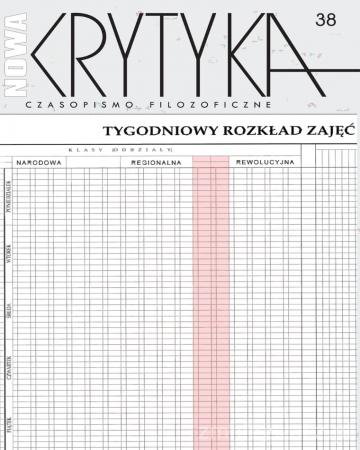




| Authors: |
Greta Julianna
Wierzbińska
Uniwersytet Jagielloński |
| Keywords: | phenomenology of body jouissance desire Lacan phantasmat Merleau-Ponty Sartre objectification liberty conflict phenomenology of perception le regard look Me other relation subjectivity |
| Data publikacji całości: | 2015 |
| Page range: | 19 (61-79) |
| 1. | Foucault M. 1998. Nadzorować i karać. Narodziny więzienia, Warszawa |
| 2. | Lacan J. 1975. Seminarium I, Les écrits techniques de Freud (S I),1953–1954, Paris |
| 3. | Levinas E. 1998. Całość i nieskończoność. Esej o zewnętrzności, Warszawa |
| 4. | Merleau-Ponty M. 1964. Le visible et l`invisible, Paris |
| 5. | Merleau-Ponty M. 1996. Widzialne i niewidzialne, Warszawa |
| 6. | Merleau-Ponty M. 2001. Fenomenologia percepcji, Warszawa |
| 7. | Sartre J.-P. 2007. Byt i Nicość, Kraków |
| 8. | Sartre J.-P. 1992. Intymność i inne opowiadania, Łódź |
| 9. | Žižek S. 2003. Patrząc z ukosa. Do Lacana przez kulturę popularną, Warszawa |